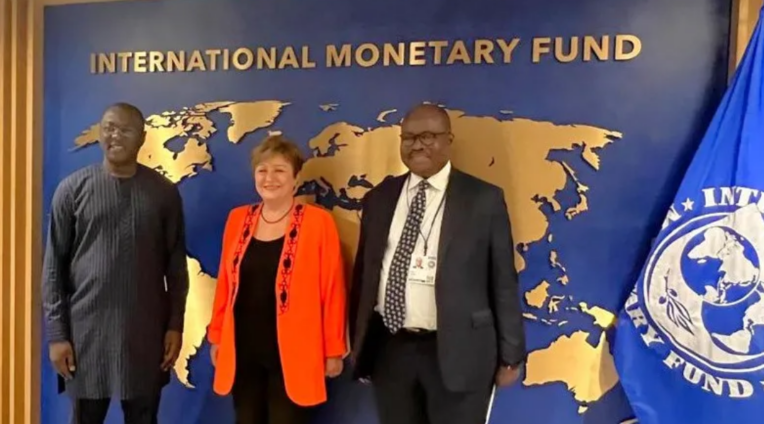Ghana’s second review programme for a third tranche of US$360 million is expected to go before the Executive Board of the International Monetary Fund (IMF) by the end of June 2024.
This is to see to the approval and disbursement of additional funds under the country’s Extended Credit Facility (ECF) programme with the IMF for economic recovery and stability.
“Our aim is to bring the review to the IMF’s Executive Board for approval before the end of June,” Julie Kovack, the Director of the Communications Department at the IMF said this during a press briefing on Thursday, June 6.
“This would give Ghana access to US$360 million in financing, bringing the total to about US$1.6 billion in disbursements since May of 2023,” she noted.
This development comes after the country reached staff-level agreement on economic policies and reforms for the second review of the programme on April 13, 2024.
Since then, the country has also received a draft Memorandum of Understanding (MoU) from its Official Creditors, and reviewing it before signing it to signal a formal end to the negotiations with the creditors.
Looking ahead, steadfast policy and reform implementation would be crucial to fully and durably restore macroeconomic stability and debt sustainability in Ghana, she said.
On the progress of the three-year loan-support programme implementation, Ms Kovack echoed that Ghanaian authorities’ strong policy and reform efforts were bearing fruit, with signs of economic stabilisation emerging.
“For example, growth in 2023 was higher than we had initially envisaged,” she said.
Ghana’s growth was 2.9 per cent at the end of 2023, higher than the 1.5 per cent figure projected by the IMF under the ongoing loan-support programme.
The signing of the MoU, together with the disbursement of the US$360m third tranche, would be important in stabilising the Cedi against its major trading currencies, particularly, the Dollar.
The Governor of the Bank of Ghana (BoG), Dr Ernest Addison, has indicated that the money would further boost the country’s foreign reserves, thereby, supporting the stability of the Cedi.
The World Economic Forum has explained that foreign reserves, comprising cash and other assets like gold, and held by central banks are crucial in maintaining stability in domestic currency, and providing liquidity during economic crisis.
Latest Stories
-
Tumu Community Cup: Soccer Babies to face Nabulo in opener as 24 Hours draw Tarsor
57 minutes -
US Congress moves to block California ban on petrol-only cars
1 hour -
Modric to leave Real Madrid after Club World Cup
2 hours -
Four dead, several missing in record Australia flooding
3 hours -
Kid Cudi testifies at Diddy trial about Molotov cocktail attack
3 hours -
‘We’re losing to Kenya and Ivory Coast because of bad tax policy’ – Acting Chamber of Mines boss
4 hours -
Police arrest suspect in gruesome murder of University of Education lecturer in Winneba
4 hours -
Joy News gets results: Nhyiaeso MP constructs a 33-unit classroom block for State Experimental School in Kumasi
4 hours -
‘New taxes could collapse mining sector’ – Chamber of Mines warns
5 hours -
Ghana’s public debt rises to GH¢769.4bn in March 2025
5 hours -
Cedi gains 24.1% to dollar in May 2025 – BoG
5 hours -
Court issues bench warrant for businessman over GH¢149,000
5 hours -
Court sentences car thief to 5 years imprisonment
5 hours -
JHS dropout who returned lost wallet, receives GH₵6K to return to school
5 hours -
Full Text: Isaac Adongo’s statement on economic stability under Mahama’s reset agenda
6 hours

